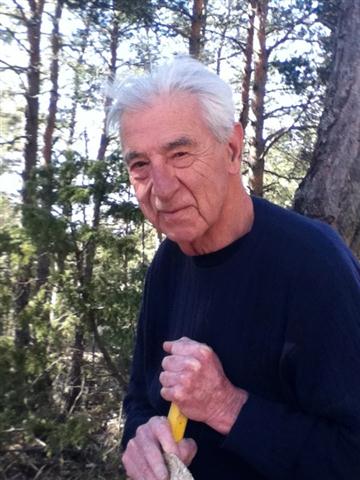 |
| photo: Olivia Toperoff |
Sam Toperoff was born in Brooklyn, N.Y., the privileged son of a very poor family. He was supposed to carry the family banner to new heights through intellectual achievement, but instead drove his father to lament, "When will the boy ever read a book?" Toperoff has published 12 novels and works of nonfiction. Forty years ago he got it into his head to build a small house in the French Alps; the house is no longer so small and he lives and works there with three generations of a family that all seem to get along. His new novel is Lillian & Dash (Other Press, July 16, 20130.
On your nightstand now:
Shirley by Charlotte Bronte; this one I borrowed (took) from a hotel in Florence recently because the weather was so bad and we were confined to our room. I'm enjoying it immensely because it blends human temperament and politics so subtly. I'm starting a new novel about the silent movie era called Frame-up! Roscoe "Fatty" Arbuckle, so that explains my wanting to know more about Arbuckle. Pat Barker is one of my absolute favorites; I'm rereading Regeneration because I learn from her. A friend here in France is president of the Jack London Society; I'm reading his letters and discovering that he was indeed the father of an entire generation of self-promoting American writers. Because the subject overwhelms and confuses me, I'm reading less often than the above from Wilson's Social Conquest of Earth and Mother Nature by Sarah Hrdy.
Favorite book when you were a child:
Alas, didn't read when I was a child. The schoolyard in Brooklyn beckoned, and I believed my future was there.
Your top five authors:
1. Kurt Vonnegut: one night I was on a panel with Vonnegut, but it was during the Vietnam War and whatever the topic was, the evening devolved into a bitter give-and-take with a very right-wing patriotic audience (it was in Staten Island). My position was radical and, as it turns out, historically correct. Things were getting dangerous, and Vonnegut stepped in to save me ass. We became friends that night.
2. Joseph Conrad, simply because I've come to a point in my writing where I believe a good story well told is everything--and so Joseph Conrad.
3. Pat Barker: I don't know why, but I just love her, and you can't explain love.
4. Jose Saramago, because he encourages me with the idea that as long as you think you know what you're doing as a writer, you can do just about anything.
5. Kazuo Ishiguro for the sheer surprise, for his cool and his hip.
Book you've faked reading:
It's a tie between Moby Dick and War and Peace, depending on who I'm trying to impress.
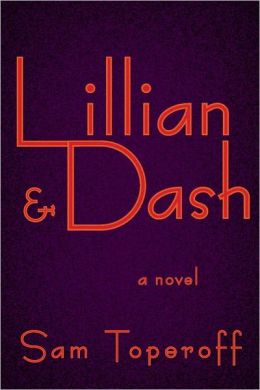 Book you're an evangelist for:
Book you're an evangelist for:
Tie between Strength in What Remains by Tracy Kidder, the best, most soulful nonfiction writer in America, and Never Let Me Go by Ishiguro.
Book you've bought for the cover:
I honestly don't believe I ever have, but I'd probably be the last to know, if the art department was doing its job.
Book that changed your life:
Dostoyevsky's Crime and Punishment. It was the summer I decided to become a real reader, which is surprising because I was already teaching at university. Probably I got tired of lying about books I'd read and decided to read a classic. I was so involved in the psychological cat and mouse that all I did was read, eat, sleep and read. (In anticipation of the next question--It was the best of times....)
Favorite line from a book:
"It was a dark and stormy night...." As a matter of fact, it is the beginning line from a new novel. I wanted to see if I could make it work while at the same time trying to cash in on what the reader already feels about it.
Book you most want to read again for the first time:
A Little History of the World by E.H. Gombrich. I've already read it five times. And when I'm done typing this questionnaire, I think I'll start it again. If I could write for smart kids the way he does, I'd have achieved something that has always escaped me, profound simplicity. Talk about making the world approachable.
How can you tell when a translation is poor?
I don't know, but you can just tell. Probably because everything else--especially the story and the author's intelligence--about the novel is so good.
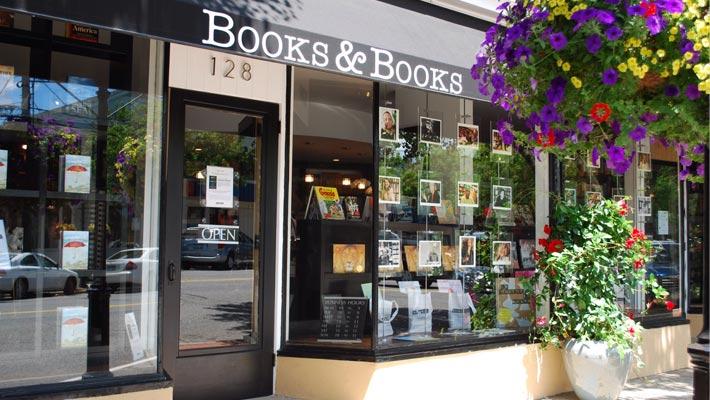 Later this morning, Books & Books, with stores in South Florida, Westhampton Beach, N.Y., and the Cayman Islands, is sending out its first edition of Shelf Awareness for Readers. Founded by Mitchell Kaplan in 1982, Books & Books has become one of the most respected independent bookstores in the country. We're very pleased to welcome them to the family of stores that are part of our newsletter program. You can find more information about Shelf Awareness's bookstore edition here.
Later this morning, Books & Books, with stores in South Florida, Westhampton Beach, N.Y., and the Cayman Islands, is sending out its first edition of Shelf Awareness for Readers. Founded by Mitchell Kaplan in 1982, Books & Books has become one of the most respected independent bookstores in the country. We're very pleased to welcome them to the family of stores that are part of our newsletter program. You can find more information about Shelf Awareness's bookstore edition here.





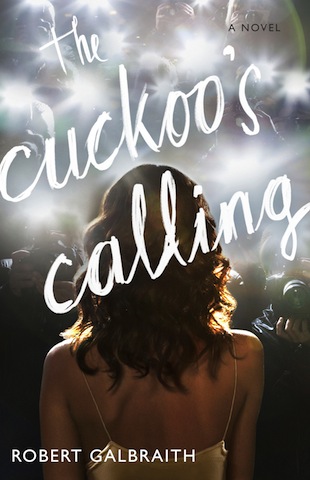 London law firm
London law firm 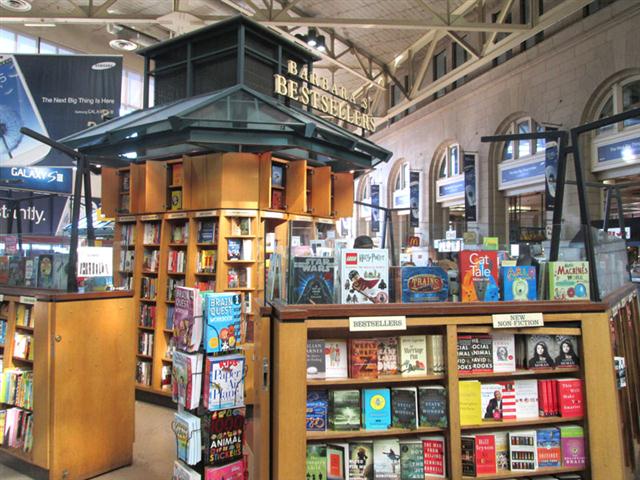
 According to an article in the Journal of Environmental Psychology, the research team conducted a 10-day experiment in a Belgian general-interest bookstore and discovered that retailers "can make use of pleasant ambient scents to improve the store environment, leading consumers to explore the store.... customers were 2.22 times more likely to closely examine multiple books when the chocolate scent was present in the store, compared with the control condition."
According to an article in the Journal of Environmental Psychology, the research team conducted a 10-day experiment in a Belgian general-interest bookstore and discovered that retailers "can make use of pleasant ambient scents to improve the store environment, leading consumers to explore the store.... customers were 2.22 times more likely to closely examine multiple books when the chocolate scent was present in the store, compared with the control condition." 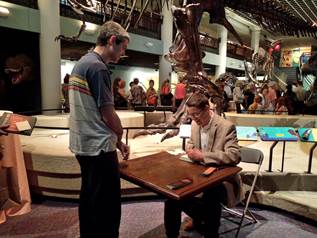 Last week, the Academy of Natural Sciences of Drexel University in Philadelphia, Pa., hosted the launch party for Jon McGoran's new ecological thriller about genetically modified foods and pharmaceuticals, Drift (Forge).
Last week, the Academy of Natural Sciences of Drexel University in Philadelphia, Pa., hosted the launch party for Jon McGoran's new ecological thriller about genetically modified foods and pharmaceuticals, Drift (Forge).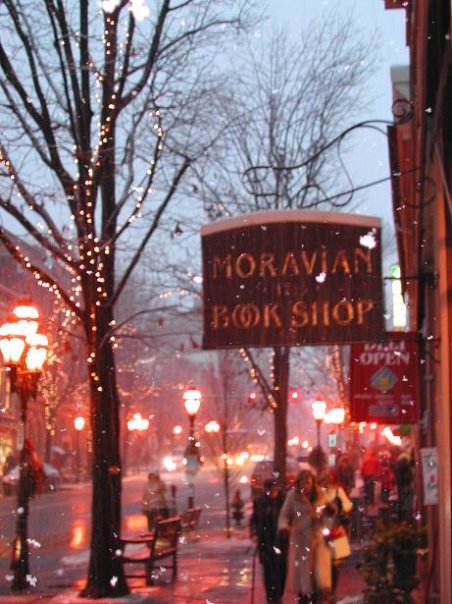 "It may be 90 degrees outside, but
"It may be 90 degrees outside, but 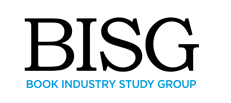 The
The 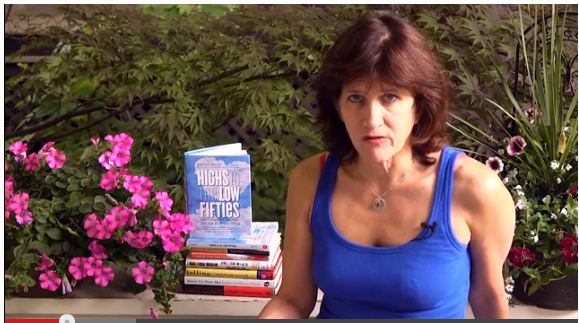 Highs in the Low Fifties: How I Stumbled Through the Joys of Single Living
Highs in the Low Fifties: How I Stumbled Through the Joys of Single Living

 Book you're an evangelist for:
Book you're an evangelist for: 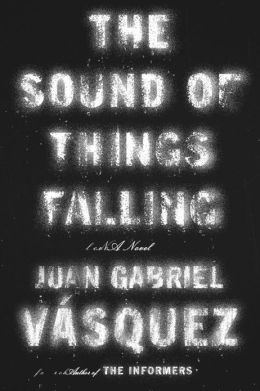 For many years, when the country of Colombia was mentioned, the first thing that came to mind to was the Medellín cartel, known for drug trafficking, money laundering, assassinations, extortion, kidnappings, murders, political corruption, arms trafficking, racketeering and terrorism. Throughout the 1970s and '80s, until 1993, when he was killed, drug lord and narcoterrorist Pablo Escobar ran a war against anyone who got in his way.
For many years, when the country of Colombia was mentioned, the first thing that came to mind to was the Medellín cartel, known for drug trafficking, money laundering, assassinations, extortion, kidnappings, murders, political corruption, arms trafficking, racketeering and terrorism. Throughout the 1970s and '80s, until 1993, when he was killed, drug lord and narcoterrorist Pablo Escobar ran a war against anyone who got in his way.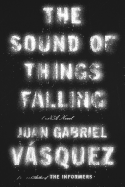
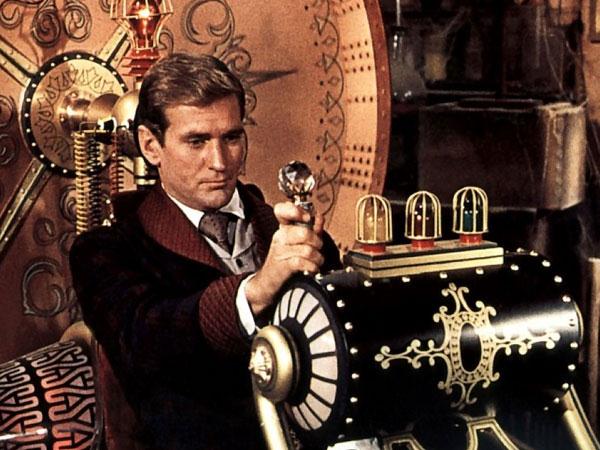 Straightforward timelines are, by comparison, much more comforting. Picture Rod Taylor in the 1960 film version of The Time Machine. Emotionally and philosophically dyspeptic after a frustrating New Year's Eve dinner with doubting friends, he sits in his invention, an elegant Victorian time sled. He reaches for a crystal knob and pushes "the lever forward ever so slightly."
Straightforward timelines are, by comparison, much more comforting. Picture Rod Taylor in the 1960 film version of The Time Machine. Emotionally and philosophically dyspeptic after a frustrating New Year's Eve dinner with doubting friends, he sits in his invention, an elegant Victorian time sled. He reaches for a crystal knob and pushes "the lever forward ever so slightly." 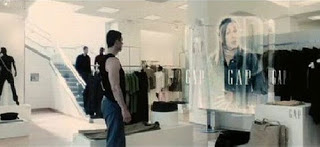 Then I recalled a scene in
Then I recalled a scene in